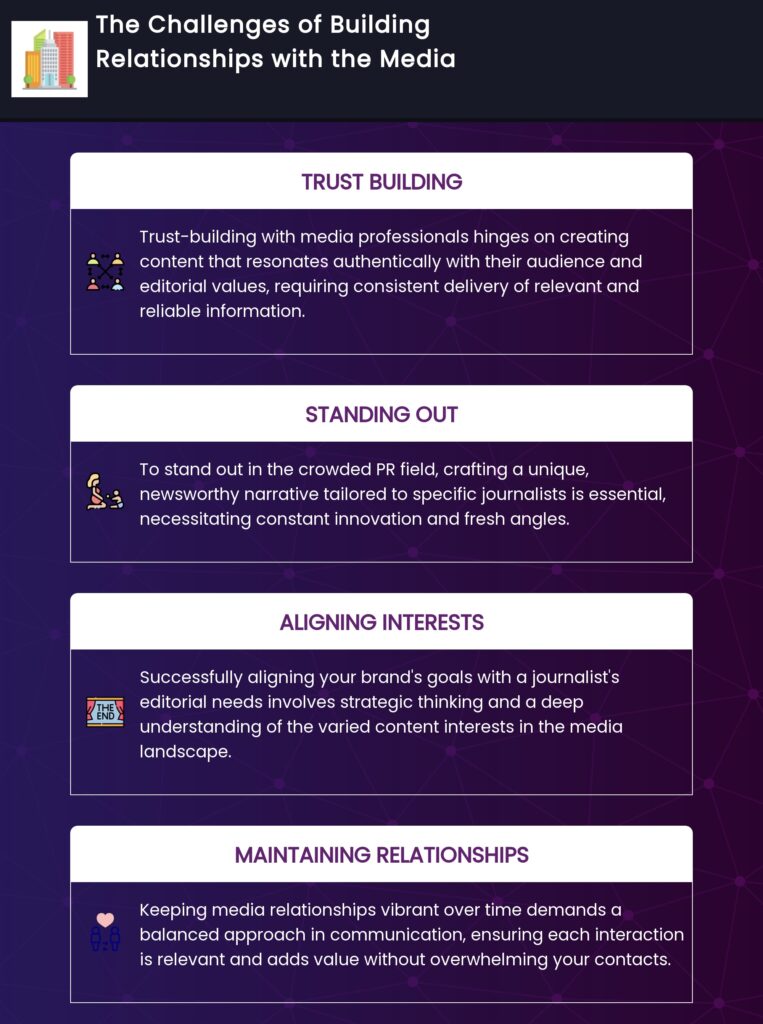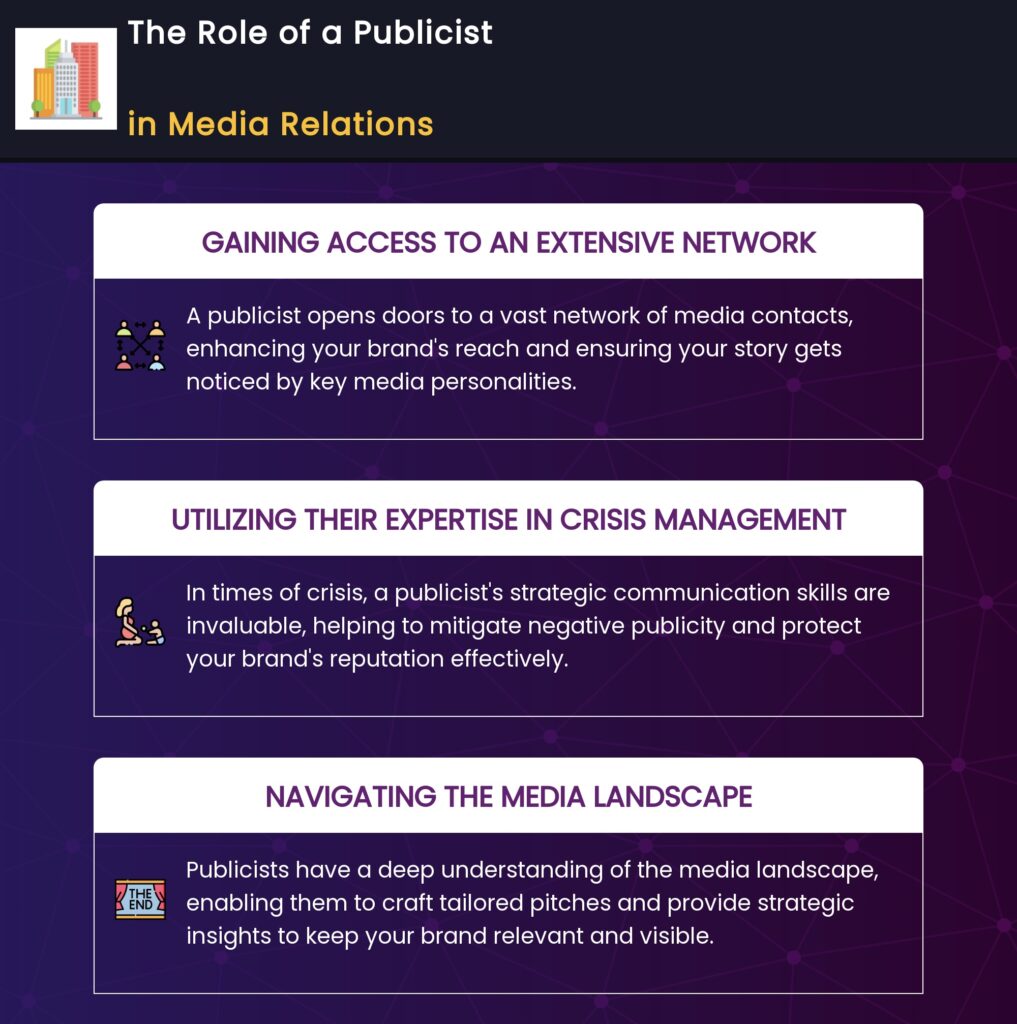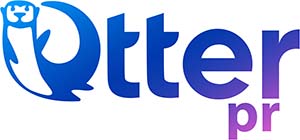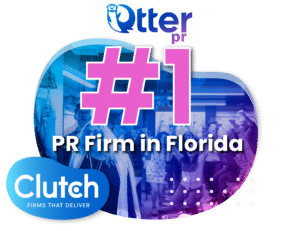In today’s ever-evolving media landscape, building relationships with the media stands as a cornerstone for public relations success. This article delves into effective strategies for creating and maintaining these vital connections. Here, you’ll discover how mastering the art of media relations can significantly elevate your brand’s presence and influence in a competitive marketplace.
What is Media Relations?
Media relations is the strategic communication process that builds mutually beneficial relationships between organizations and journalists. For businesses, it’s more than just garnering press coverage, it’s about crafting a narrative that resonates with both media outlets and their audiences. Effective media relations can enhance brand visibility, establish thought leadership, and foster trust in your business.
How Building Relationships with the Media Can Enhance Your Brand
Navigating the media landscape can be a complex yet rewarding journey for any brand. In this section, we’re going to look at the tangible benefits that come from nurturing strong relationships with media professionals.
1. Enhanced Brand Visibility
Building strong media relationships can significantly amplify your brand’s presence. When the media frequently and favorably covers your stories, your brand voice resonates louder and clearer in a crowded marketplace. This continuous exposure helps your brand to stand out, making it more recognizable and memorable to your target audience.
2. Access to New Audiences
One of the key advantages of building relationships with the media is the opportunity to reach new and diverse audiences. Media outlets have their own established followings, and by leveraging these platforms, your brand can connect with potential customers who might have been unreachable otherwise. This expanded reach is crucial for growing your brand’s footprint.
3. Support in Crisis Management
In times of crisis, having established media relationships can be a lifeline for your brand. Trusted media allies can help communicate your side of the story accurately and promptly, allowing you to manage public perception effectively. This support is invaluable in maintaining your brand’s integrity and trustworthiness during challenging times.
The Power of Media Exposure for Your Business
Media exposure isn’t just about getting your name out there. It’s a strategic move that can transform your brand’s standing. Here, we’ll explore how being featured in the media can significantly raise your brand’s profile and sway public opinion.
1. Boosted Brand Recognition
Media exposure is a powerful tool for enhancing brand recognition. When your brand is featured in media stories, it gains attention and recognition from a wider audience. This exposure is crucial in building brand awareness, as it introduces your brand to potential customers and keeps it top-of-mind for existing ones.
2. Influencing Public Perception
The media plays a significant role in shaping public perception. By getting positive media coverage, your brand can influence how it’s perceived by the public. This aspect of media exposure is essential in building a positive brand image and reputation, which can directly impact consumer decisions and loyalty.
3. Credibility and Validation
Media exposure serves as third-party validation for your brand. When reputable media outlets feature your brand, it enhances your credibility in the eyes of consumers. This perceived endorsement by the media can be more persuasive than traditional advertising, as it comes across as unbiased and earned.
Overcoming Challenges in Building Relationships with the Media
Building and maintaining relationships with the media is a complex task filled with distinct challenges. These range from establishing trust and distinguishing your narrative in a saturated market to aligning your brand goals with journalists’ needs and keeping relationships vibrant. Each hurdle requires strategic navigation. Mastering these aspects is crucial for anyone aiming to develop enduring and beneficial media connections.

Trust Building
Gaining the trust of media professionals is a nuanced challenge. It’s not just about the content of your pitches but how they resonate with the media’s audience and editorial values. This challenge stems from the need for authenticity and the ability to consistently deliver relevant and reliable content. Trust-building is a slow process, requiring patience and a deep understanding of the media landscape.
Standing Out
In the crowded field of PR, where journalists receive an overwhelming number of pitches daily, making your story stand out is particularly challenging. The difficulty lies in crafting a narrative that is not only newsworthy but also unique and tailored to the specific journalist. This challenge is intensified by the need to constantly innovate and find fresh angles that capture media attention amidst a sea of competing stories.
Aligning Interests
Aligning your brand’s goals with a journalist’s editorial needs is a delicate balancing act. The challenge arises from the diverse and often specific content interests of media outlets. Creating a pitch that serves your brand’s purpose while fitting seamlessly into a journalist’s narrative requires strategic thinking and a keen understanding of the media’s content landscape.
Maintaining Relationships
Maintaining media relationships over time presents its own set of challenges. The key difficulty lies in staying relevant and engaging without overwhelming your media contacts with frequent or irrelevant communication. This requires a strategic approach to content sharing, ensuring that each interaction adds value and strengthens the relationship rather than diminishing it.
Strategies for Building Relationships with the Media: Insights from PR Pros
A well-thought-out strategy is crucial for maintaining quality media relationships. Here are 8 strategies recommended by seasoned PR professionals:
1. Personalize Your Pitch
Personalizing your pitch is crucial in capturing a journalist’s interest. This strategy involves researching and understanding the journalist’s beat, past articles, and audience preferences. Tailoring your story to align with their interests not only increases the chances of your pitch being noticed but also demonstrates respect for their work and audience. It’s about making your content relevant and appealing to them specifically.
2. Be a Reliable Source
Being a reliable source is paramount in establishing trust with the media. Provide journalists with accurate and timely information, and make yourself available for any follow-ups or clarifications. Consistency in delivering quality information can position you as a go-to source in your industry, leading to more media opportunities and stronger relationships.
3. Create Compelling Stories
The ability to craft compelling, newsworthy stories sets you apart in the media landscape. Your stories should not only be informative but also engaging and unique, offering fresh perspectives or insights. A compelling narrative grabs attention and is more likely to be picked up by the media, thereby enhancing your brand’s visibility.
4. Leverage Social Media
Social media is a powerful tool for building relationships with journalists. By engaging with them on platforms they are active on, you can establish a more informal and direct line of communication. Share their work, offer thoughtful comments, and use these platforms to understand their interests and journalistic style.
5. Practice Timely Communication
Timeliness in communication is key in media relations. Responding promptly to media inquiries and keeping journalists updated shows professionalism and respect for their deadlines. This practice helps in building a reputation for being reliable and easy to work with.
6. Offer Exclusive Content
Offering journalists exclusive access to breaking news, expert insights, or behind-the-scenes content can be a strong incentive for them to engage with your brand. Exclusivity makes the media feel valued and can lead to more in-depth and favorable coverage, strengthening your media relationships.
7. Host Media Events
Hosting media events, such as press conferences, launches, or exclusive briefings, provides opportunities for face-to-face interaction with journalists. These events allow for direct relationship building and offer journalists a firsthand experience of your brand or story, which can be invaluable in garnering media interest.
8. Follow Up Thoughtfully
Following up with journalists after they cover your story is an important step. A thoughtful follow-up, expressing gratitude without being overbearing, can reinforce a positive relationship. This gesture of appreciation can go a long way in maintaining ongoing communication and goodwill with the media.
The Role of a Publicist in Building Media Relationships
The role of a publicist is integral in media relations. They act as intermediaries, expertly crafting your message, identifying the right media contacts, and pitching your story effectively. Here are some of the key advantages of having a publicist by your side:

Gaining Access to an Extensive Network
Having a publicist means tapping into their extensive network of media contacts, which can be a game-changer for your brand. Publicists often have established relationships with a wide range of journalists, editors, and influencers across various media outlets. They know exactly what building relationships with the media entails. This network is invaluable in getting your story in front of the right people. It ensures that your pitches reach influential media personalities, greatly enhancing the chances of your story being picked up and featured.
Utilizing Their Expertise in Crisis Management
In the event of a PR crisis, a publicist’s expertise becomes critically important. They are trained to handle such situations with strategic communications and can guide you in navigating through the crisis effectively. Their experience in managing media relations during crises helps in mitigating negative publicity and maintaining your brand’s reputation. A publicist can craft the right messages, decide the best communication channels, and advise on the timing and tone of responses, ensuring that your brand navigates the crisis as smoothly as possible.
Navigating the Media Landscape
Publicists have a deep understanding of the media landscape and know how to navigate it to your advantage. They can identify the most suitable media outlets and platforms for your brand’s story and understand the nuances of what makes a story appealing to different journalists. This knowledge is crucial in developing tailored pitches that resonate with the media. Moreover, publicists can provide insights into emerging media trends and advise on the best strategies to capitalize on these opportunities, keeping your brand relevant and prominent in the media.
Working with PR Experts at Otter PR
At Otter PR, we stand out for our personalized approach to media relations. We understand your unique brand story and how to align it with the right media channels. Working with our team ensures access to seasoned PR experts, strategic insights, and the leverage of an extensive media network. To explore how we can elevate your media relations, get in touch with us today.
Tags: business success, media relations, PR, Public relations







